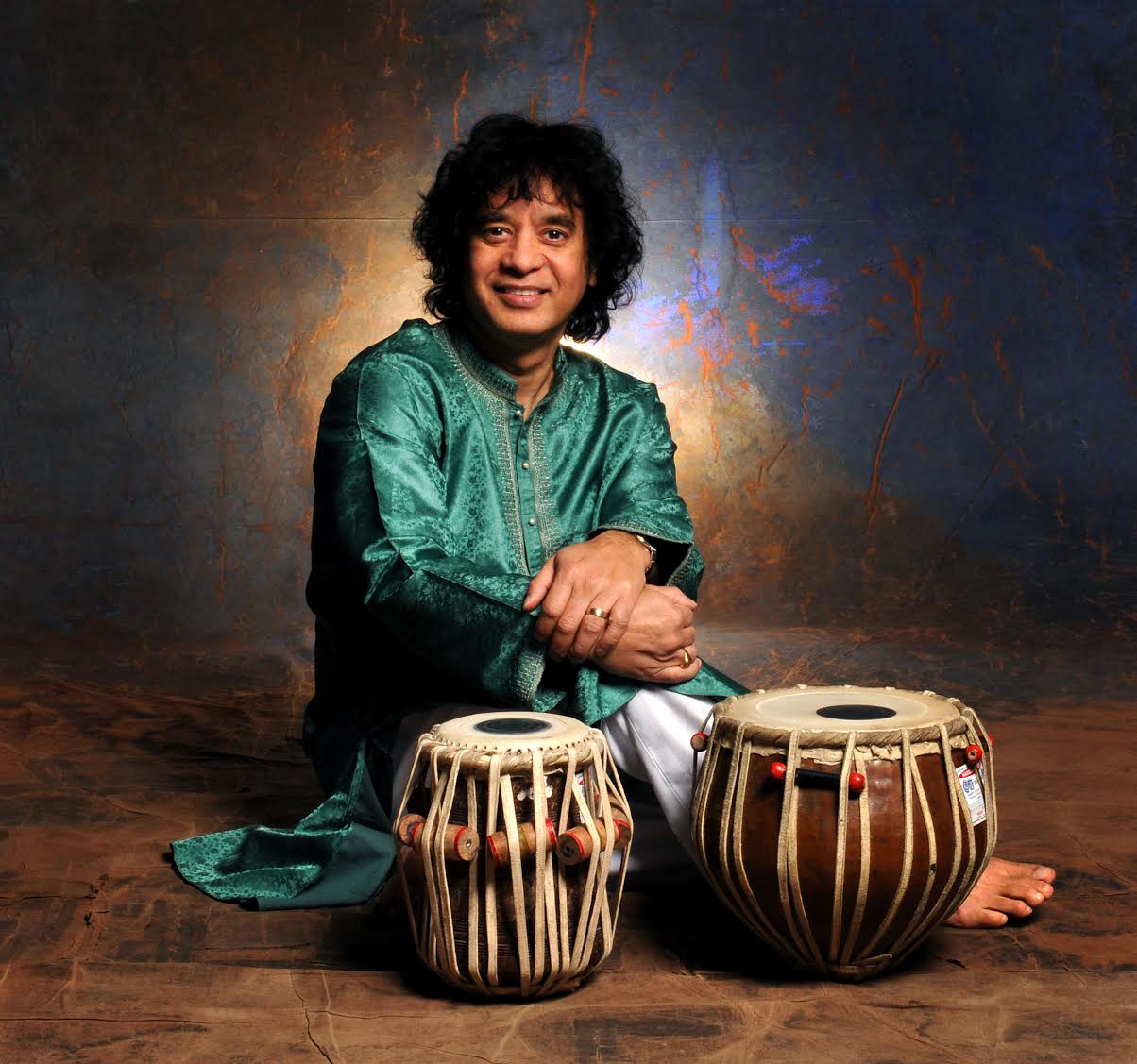Q&A: Tabla virtuoso, composer Zakir Hussain on blending musical genres

Zakir Hussain, a tabla virtuoso and exponent on fusion between Western and Indian styles, will return to Royce Hall today with an ensemble of jazz and Indian classical musicians for “Crosscurrents.” (Courtesy of Jim McGuire)
By Aalhad Patankar
Oct. 6, 2015 6:33 a.m.
In 1970, Zakir Hussain took the Royce Hall stage for the first time, and has since performed hundreds of shows across the world.
Hussain is a Grammy Award-winning tabla player and composer best known for his influence on world music and fusion between Indian and Western styles.
Hussain will return to Royce Hall Tuesday with an ensemble of jazz and Indian classical musicians for “Crosscurrents,” a show examining the influence of jazz on Indian music. The Daily Bruin’s Aalhad Patankar spoke with Hussain about the show, world music and to get a peek into the mind of a classical Indian performer.
Daily Bruin: “Crosscurrents,” true to its name, represents a crossroads between several genres. How did this collaboration come together?
Zakir Hussain: We know that there was a great influence upon Indian jazz by people like Ravi Shankar, my father Alla Rakha and great musicians of India that came to this country in the late ’50s, early ’60s and inspired jazz musicians to seek more in terms of musical expression from sources other than American music.
Now, we talk about all that, but we don’t really talk about the reverse; about how India was inspired by jazz, swing, boogie-woogie, bebop and all these elements of jazz music which were heard and seen in India through Hollywood movies. … So I wanted to acknowledge this and showcase these unsung heroes who fought to preserve and nurture jazz in India and spread it all over the country.
DB: As you mentioned, tabla is becoming a more prominent instrument on the world stage. What is your own relationship with the tabla?
ZH: My relationship with tabla is that it’s my friend, my brother, my mate. I’ve grown up with it since I was 3 years old – it’s always been next to me and will always be next to me. I feel that my spirit and the spirit of the tabla have communicated and connected, and that’s made my conversation with this instrument very unique, special and positive.
DB: You’ve performed at Royce Hall before, and your daughter graduated from UCLA as well. What is it like returning to Royce Hall and the UCLA campus?
ZH: UCLA is one of the first campuses I ever set foot on when I came to America in 1970. I was so impressed with the campus – you don’t see anything like this in India. And then when I came to play there at Royce Hall, to see a beautiful concert hall like that with an incredibly ornate feeling, where you don’t feel like you’re very far from the audience … It’s intimate, and it feels amazing to be able to play in that room.
DB: What goes on in your mind as a performer when you’re on stage?
ZH: There’s a great musician who wrote, “Learn everything under the sky, learn all the songs, all the patterns, all the chords, harmony, really get it in your system, and when you get on stage, forget all that and go from scratch.” Every person you play with is going to think differently, and you cannot apply the sensibilities of what you practice necessarily to that person. So, what you do is you come with an open mind and blank canvas but with all that experience behind you, and just react to whatever is happening on stage. If you’re holding back, trying to analyze what you just learned, you’re going to miss something when you really should be advancing the conversation.
DB: You referenced the performance as a conversation. Can you elaborate on that concept?
ZH: With Indian and jazz music, you go on stage and you spontaneously create. When that happens, it’s more of a conversation. Someone comes up with an idea and throws it out to somebody and says, “What do you think of that?” The other musician takes it and says, “This is good, how about adding this?” You talk music, you converse musically, then it’s possible for you to be able to create something.
When I work with a musician, I know what he likes to drink, what he likes to eat, what his family is about, what his son and daughter are doing. Then only, after talking to him about the world and his likes and dislikes and my likes and dislikes, then we go on stage and we carry on the conversation. The difference is instead of speaking Hindi or English or French or Italian, we’re now speaking music language.
Compiled by Aalhad Patankar, A&E senior staff.


